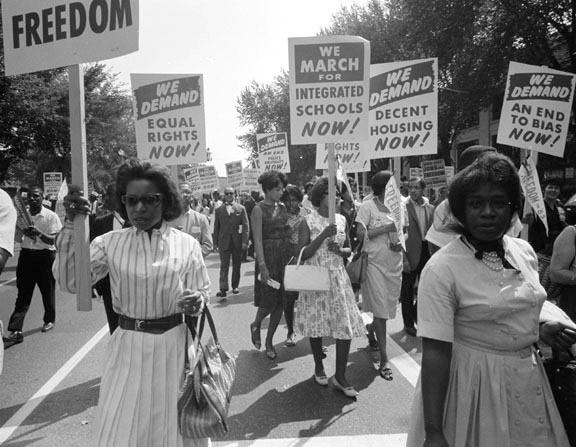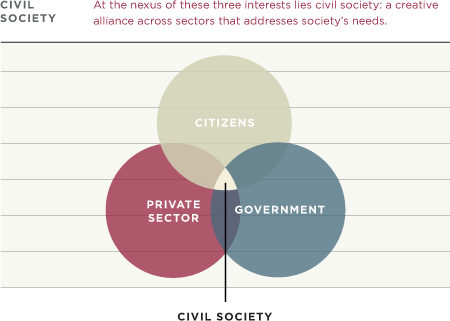Mostly, the Smithsonian Sucked, but Rube Goldberg Rocked My World
I grew up with an inflated view of the status of comic strip artists. My Mom had aspired to draw comics, as an art student at the Philadelphia Institute of Art. While she could paint, draw and sculpt, the “gag” part of comics mostly eluded her. So, she particularly admired artists who could also make her laugh.
My Dad also loved comics, and always opened his newspaper to the funny-page first. I don’t ever remember him watching a sports event on TV, but I rarely saw him when he wasn’t staring at a television set. He watched it because it made him laugh.
So, early on, I learned that to gain my mothers respect, and my fathers attention, I needed to be funny. Unfortunately, I had little natural talent in that area, and quickly became an annoyingly inane child. Even so, I believed that our culture held comedians and comic artists in at least as high esteem as doctors or TV anchormen. So, I listened carefully to what they had to say.
At the tender age of 5 or 6, my parents took me, for the first time, to the Smithsonian Institution in Washington DC. It was there I learned just how highly this nation valued the great comic artists of our time.
Even at 5 or 6, the Smithsonian really didn’t impress me that much, especially considering how much my parents hyped it. The big fake elephant in the Natural History museum really didn’t hold a candle to the complete skeleton of a Brontosaurus I’d seen several times at the Cleveland Museum of Natural History.
That brontosaurus at the Cleveland Museum of Natural History is awesome btw. It’s bigger than the Smithsonian’s fake elephant and fake blue whale, put together, and it is a real skeleton of the biggest fucking dinosaur that ever walked the face of the earth. It regularly scares the living piss out of small children, who run for their lives, screaming, as their parents drag them into the hall to see it. But, back to the Smithsonian.
Sure, they had a lot of cool airplanes at the Air and Space Museum, but again, not as many as the Air Force Museum in Dayton, OH. Parents, if you really want to show your kids something impressive, forget Washington DC, take your kids to Ohio (links to Ohio Board of Tourism).
Really, the only thing that really impressed me about the Smithsonian Institution was the Rube Goldberg Museum.
Yes, immediately after visiting the Natural History Museum, and the Aerospace Museum, my parents led me into a grand hall full of funny drawings, and full scale working models, of comical and bizarre contraptions. Among them, I recognized the mechanism behind the famous board-game “Mousetrap”.
Here I stood in a great brick building dedicated to the inventor of “Mousetrap”, as well as hundreds of other equally eccentric, unlikely looking inventions, all created by one man, Rube Goldberg.
Except for the big swinging pendulum, seemingly everything in that grand Gallery bore the recognizable style, and inimitable signature of this giant among men, Rube Goldberg. I learned a lot about this great man, as I gazed in awestruck amazement at his work.
I saw life-size working models of Goldberg’s elaborate contraptions, including a device that would automatically take your photograph. You sat in a chair, which caused a large whoopie cushion to deflate, the air from the whoopie cushion propelled a small sailboat, specially outfitted with a lit cigar on its bow, across a block of ice. When the boat reached the far side of the block of ice, the cigar touched an inflated balloon, which then popped. Nearby, a soldier with PTSD, hears the balloon pop, and believes that he has been shot. So, he falls over backwards, landing on the bulb of an old fashioned remote shutter release cable, attached to an old-fashioned camera, which then snaps a photo of the seated subject. The thing took up at least 300 square feet of floor space, and actually, kind of, worked. Pure genius, I thought.
Of course, a slightly longer cable release would have made the rest of the apparatus completely unnecessary. But here, and obviously in the mind of Rube Goldberg, complexity, and inventiveness were not enslaved by function, or chained by efficiency, but instead given free reign, and allowed to run amok. To me Rube Goldberg represented the triumph of the creative spirit over the stark brutality of the industrial age.
Apparently, Mr. Goldberg enjoyed an illustrious career as an inventor of amusing machines that graced the funny-pages of newspapers across the nation. According to a noted patent historian, some of Goldberg’s comic inventions spawned real inventions that helped fuel the Industrial Revolution. Many of Goldberg’s inventions, a physicist noted, defied the laws of nature in ways that would not work in real life. It seemed to me, even at the time, that many of his inventions required the assistance of unbelievably patient, gullible, cooperative and predictable people or animals, for instance, “the diver” in the Mousetrap, board game, or the soldier in the above described, photo machine.
But I had no doubt that Rube Goldberg was a big-shot. Maybe the biggest-shot of all. After all, this was the famous Smithsonian Institution. My parents spent money, took time off of work, and brought me here, because they thought it important for me to see. To me, it was clear. The three most important things in the world were, 1. natural history, 2. air and space technology, and 3. Rube Goldberg, and of the three, the Smithsonian’s Rube Goldberg collection impressed me the most. For years, when I talked about that trip to Washington DC, I invariably talked about the Rube Goldberg Museum.
Years later, our eighth-grade class took a field-trip to Washington DC, to visit, among other things, the Smithsonian. I was quite eager to revisit the Rube Goldberg Museum, and told all of my friends about it. But when we got to the Smithsonian, I saw the same old fake elephant, the same old airplanes, plus a space capsule from the Apollo program, and some moon rocks, but no Rube Goldberg.
Eventually, I found the big pendulum, that I remembered from the Rube Goldberg Museum, in a building called The Museum of Science and Technology. Without the Rube Goldberg exhibits, the hall seemed as lame and disappointing as the rest of the Smithsonian.
At last, I found one framed Rube Goldberg comic, along with an oddly comical bronze sculpture. The sculpture, I later learned, Goldberg designed as a trophy, and it is still awarded annually to a deserving comic artist, known affectionately as “the Reuben Award”. But, what happened to the rest of that magnificent exhibit?
I eventually deduced that the Museum of Science and Technology had hosted the extensive Rube Goldberg exhibit, to celebrate the induction of the framed print and the sculpture, into the Smithsonian’s permanent collection. The sign that I thought welcomed me to the Rube Goldberg Museum, was in fact, a banner, welcoming me to the Rube Goldberg Exhibition. At five years old, it didn’t occur to me that the sign for one of the Smithsonian museums, would be a little more substantial than a painted banner strung up with rope, and the difference between a museum and an exhibition were certainly lost on me at the time at the time.
Despite that revelation, deep in my heart, I know that Rube Goldberg remains the single most important figure in the history of modern science, and I revere him, as do physicists, engineers, inventors, and comic strip artists, around the world. So, I honor his memory, and my memory of him, here.








































































































































































